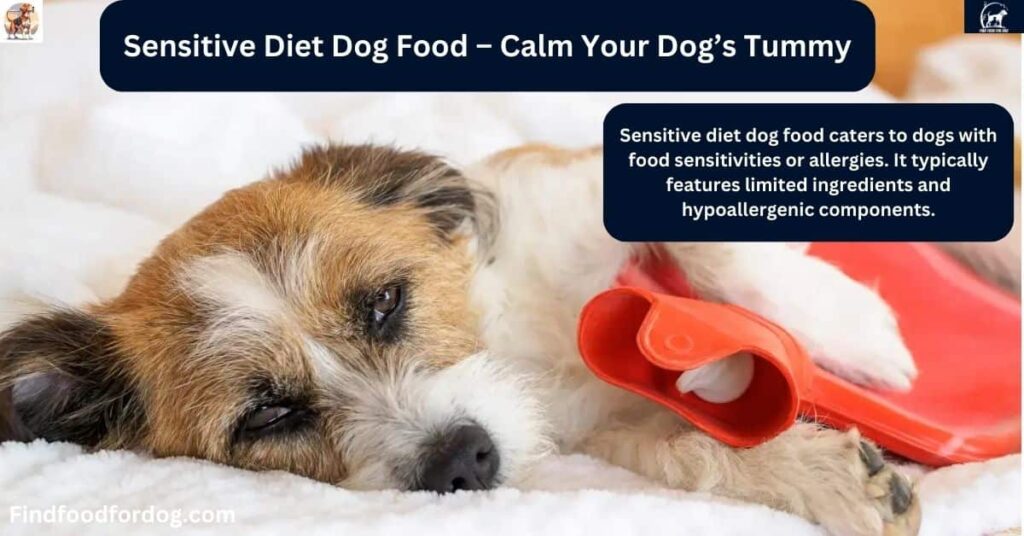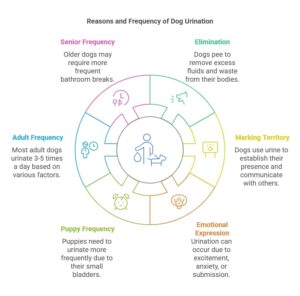Diet dog food for large breeds is specially formulated to support their unique nutritional needs. It helps maintain a healthy weight and promotes joint health.
Large breed dogs require a carefully balanced diet to thrive. These dogs often face specific health challenges, including obesity and joint issues. Choosing the right diet dog food can significantly impact their overall well-being. Quality ingredients in large breed formulas provide essential nutrients without excess calories.
Look for options rich in proteins, healthy fats, and fiber. Grain-free or whole grain varieties can also be beneficial, depending on your dog's specific needs. Always consult your veterinarian for tailored recommendations. A proper diet not only supports growth but also enhances energy levels and longevity for your beloved large breed companion.

Table of Contents
ToggleIntroduction To Large Breed Nutrition
Feeding large breed dogs requires special attention. Their unique size and growth patterns demand specific nutritional needs. Proper nutrition helps maintain their health and vitality. Understanding these needs is crucial for pet owners.
Unique Dietary Needs
Large breed dogs have distinct dietary requirements. Their bones and joints are vulnerable during growth. A balanced diet can prevent health issues.
- Calcium: Essential for bone development.
- Protein: Supports muscle growth and repair.
- Fats: Provide energy and promote skin health.
Overfeeding can lead to obesity. Obesity increases the risk of joint problems. A controlled diet helps maintain a healthy weight.
Importance Of Tailored Diets
Each large breed dog is unique. Tailored diets meet their specific needs. Ingredients should focus on high-quality sources.
| Nutrient | Importance |
|---|---|
| Omega-3 Fatty Acids | Support joint health and reduce inflammation. |
| Glucosamine and Chondroitin | Promote joint function and mobility. |
| Fiber | Aids digestion and prevents weight gain. |
Consult a vet for personalized recommendations. Proper nutrition improves overall health and lifespan. Investing in quality food pays off in the long run.
Key Nutrients For Large Breed Dogs
Large breed dogs need special care. Their diet must provide key nutrients. These nutrients support their growth, energy, and overall health. Focus on the following essential components.
Protein: Building Blocks Of Muscle
Protein is vital for large breed dogs. It helps build and repair muscles. Choose high-quality protein sources like:
- Chicken
- Beef
- Fish
Look for a dog food with at least 20-30% protein. This ensures strong muscle development. Avoid foods with low-quality protein fillers.
Fats: Energy And Coat Health
Fats provide energy for large dogs. They also keep their coat shiny and healthy. Essential fatty acids are important. These include:
- Omega-3
- Omega-6
Choose dog food with 8-15% fat content. This supports energy needs and skin health.
Carbohydrates: Digestive Health
Carbohydrates are important for digestion. They provide energy and fiber. Good sources of carbohydrates include:
- Brown rice
- Sweet potatoes
- Barley
Avoid low-quality grains. They can cause digestive issues. Aim for 30-50% carbohydrates in their diet.
Vitamins And Minerals: Overall Well-being
Vitamins and minerals support overall health. They boost the immune system and aid in growth. Key vitamins include:
- Vitamin A
- Vitamin D
- Vitamin E
Important minerals include:
- Calcium
- Phosphorus
- Iron
Look for a balanced dog food that contains these nutrients. This promotes strong bones and healthy organs.
Understanding Caloric Needs
Large breed dogs require special attention to their caloric intake. Their size and activity levels greatly affect how much they should eat. Understanding their needs helps maintain a healthy weight. This is crucial to avoid health issues.
Balancing Energy Intake
Caloric needs vary based on activity and age. Active dogs need more calories than less active ones. Here are some factors to consider:
- Age: Puppies need more calories for growth.
- Activity Level: Active dogs need higher energy.
- Weight: Overweight dogs need less energy.
Use the following table to estimate daily caloric needs:
| Weight (lbs) | Caloric Needs (kcal/day) |
|---|---|
| 50 | 1,000 |
| 70 | 1,250 |
| 90 | 1,500 |
Adjust the amount based on your dog’s specific needs. Monitor their weight regularly.
Avoiding Obesity In Large Breeds
Obesity is a common issue in large breed dogs. It can lead to serious health problems. To avoid this, follow these tips:
- Measure food portions accurately.
- Choose high-quality, low-calorie dog food.
- Limit treats and snacks.
- Encourage regular exercise.
Regular vet check-ups help monitor weight. Keep an eye on your dog’s body condition score. Adjust feeding as needed to maintain a healthy weight.

Credit: shop.hillspet.com
Special Dietary Considerations
Large breed dogs have unique dietary needs. Their size affects their growth, joint health, and sensitivities. Understanding these needs helps in choosing the right diet. Here are key areas to focus on:
Joint Health Supplements
Large breeds are prone to joint issues. Supplements can support their joint health. Common joint health supplements include:
- Glucosamine: Helps rebuild cartilage.
- Chondroitin: Reduces inflammation and pain.
- Omega-3 Fatty Acids: Supports overall joint function.
Always consult a vet before adding supplements. They can recommend the right dosage and type.
Managing Growth Rates
Rapid growth can lead to health problems. It's crucial to manage your dog's growth rate. Consider these tips:
- Choose a diet designed for large breeds.
- Monitor food portions carefully.
- Consult a veterinarian for growth tracking.
Proper nutrition ensures steady growth. This reduces the risk of bone and joint issues.
Allergies And Sensitivities
Large breeds may suffer from food allergies. Common allergens include:
| Allergen | Symptoms |
|---|---|
| Chicken | Itching, skin issues |
| Beef | Digestive problems |
| Dairy | Gas, diarrhea |
Look for hypoallergenic dog food options. Limited ingredient diets can also help. Regular vet check-ups can assist in managing sensitivities.
Choosing The Right Diet Dog Food
Picking the right diet dog food for large breeds is crucial. Proper nutrition supports their growth and health. Large breeds have unique needs. Understanding these needs helps you make informed choices.
Commercial Vs. Homemade Diets
Choosing between commercial and homemade diets can be tricky. Both options have pros and cons.
| Option | Pros | Cons |
|---|---|---|
| Commercial |
|
|
| Homemade |
|
|
Reading And Understanding Labels
Understanding dog food labels is essential. Look for key information on the packaging:
- Guaranteed Analysis: Check for protein, fat, and fiber content.
- Ingredients List: Ensure high-quality ingredients are listed first.
- AAFCO Statement: Look for a statement verifying nutritional adequacy.
Beware of vague terms like “natural” or “premium.” Always choose foods that meet your dog's specific needs.
Recommended Brands And Products
Several brands offer quality diet dog food for large breeds. Here are some top options:
- Royal Canin: Tailored formulas for large breeds.
- Hill's Science Diet: Vet-recommended for balanced nutrition.
- Blue Buffalo: Natural ingredients with no artificial additives.
- Orijen: High-protein, grain-free options.
Always consult your vet before making changes to your dog's diet. They can provide personalized recommendations based on your dog's health and lifestyle.
Feeding Strategies For Large Breeds
Feeding large breed dogs requires careful planning. Their size demands special attention to diet. Proper nutrition helps maintain a healthy weight. It also supports strong bones and joints. Here are some effective feeding strategies.
Portion Control
Portion control is vital for large breeds. It prevents obesity and related health issues. Follow these steps for effective portion control:
- Check the dog food label for serving sizes.
- Measure food using a standard cup.
- Divide daily food into set portions.
Use the following table as a guideline for portion sizes:
| Dog Weight (lbs) | Daily Food Amount (cups) |
|---|---|
| 50 | 3 to 4 |
| 75 | 4 to 5 |
| 100 | 5 to 6 |
Meal Frequency
Meal frequency affects a large breed's health. Adult dogs benefit from two meals a day. This helps with digestion and energy levels. Puppies need more frequent meals. Follow these tips:
- Feed adult dogs twice daily.
- Feed puppies three to four times daily.
- Keep meal times consistent each day.
Transitioning Foods Safely
Transitioning to new dog food should be gradual. This helps avoid digestive upset. Follow these simple steps:
- Mix 25% of the new food with 75% of the current food.
- After three days, switch to 50% new and 50% old food.
- After another three days, mix 75% new and 25% old food.
- Finally, serve only the new food after a week.
Always monitor your dog's reaction during the transition. Look for any signs of discomfort or allergies.
Monitoring Your Dog's Health
Keeping an eye on your dog's health is vital. Regular monitoring helps spot issues early. This is especially important for large breed dogs. Their size can make them more prone to certain health problems.
Regular Veterinary Check-ups
Regular visits to the vet are key. These check-ups allow for early detection of health issues. Vets can assess your dog's weight and overall condition.
- Schedule annual check-ups.
- Discuss diet concerns during visits.
- Ask about vaccinations and parasite control.
Take advice from Pet Expert Dr Marty
ESA Pet is an online service that helps you get a legitimate ESA letter
Pet vitamin supplements and grooming products
Vets can recommend a specific diet for your dog's needs. Keeping track of your dog's health will ensure a longer, happier life.
Signs Of Nutritional Imbalance
Watch for signs of nutritional imbalance in your dog. Common symptoms include:
- Weight gain or loss
- Dry or dull coat
- Unusual behavior or lethargy
- Digestive issues, such as diarrhea
Contact your vet if you notice any of these signs. Adjusting the diet can help restore balance.
Adjusting Diet With Age
Your dog's dietary needs change as they age. Puppies require more protein and calories. Adult dogs need a balanced diet to maintain health.
| Age Stage | Dietary Focus |
|---|---|
| Puppy | High protein, high calories |
| Adult | Balanced nutrition, weight management |
| Senior | Low-calorie, joint support |
Adjust portions based on your dog's life stage. Monitor their weight to ensure they stay healthy.
Success Stories
Many owners see amazing results with diet dog food for large breeds. These stories inspire others. They show how the right food can change lives.
Real-life Transformations
Here are some incredible transformations:
| Dog's Name | Before Weight | After Weight | Time Frame |
|---|---|---|---|
| Max | 120 lbs | 90 lbs | 6 months |
| Bella | 110 lbs | 75 lbs | 5 months |
| Rocky | 150 lbs | 110 lbs | 8 months |
These dogs thrived on diet dog food. Owners switched their diets and saw results. Weight loss improved their health and energy levels.
Owner Testimonials
Here are some owner experiences:
- Sarah: “Max lost 30 pounds! He's more playful now.”
- James: “Bella has so much energy. We play every day!”
- Linda: “Rocky is happier and healthier than ever.”
These testimonials show the benefits of diet dog food. Happy dogs lead to happy owners.
Frequently Asked Questions On Diet Dog Food for Large Breeds
What Is Diet Dog Food For Large Breeds?
Diet dog food for large breeds is formulated to meet their specific nutritional needs. It typically contains lower calories to help manage weight while providing essential nutrients for joint health and muscle maintenance. This food supports healthy growth and development in larger dogs, ensuring they stay active and fit.
How To Choose Diet Food For Large Dogs?
When choosing diet food for large dogs, look for high-quality protein sources. Check for a balanced ratio of fats and carbohydrates. Ensure the food contains essential vitamins and minerals. Consult with your veterinarian for recommendations tailored to your dog’s age, weight, and health status to make the best choice.
Are Grain-free Diets Good For Large Breeds?
Grain-free diets can be beneficial for some large breeds, especially if they have grain sensitivities. However, not all large dogs require grain-free options. It's important to ensure the diet includes adequate protein and fiber. Always consult your veterinarian before making significant dietary changes to ensure your dog's health and well-being.
How Much Should Large Breed Dogs Eat?
Large breed dogs typically require 20 to 30 calories per pound of body weight daily. This can vary based on age, activity level, and overall health. It's crucial to follow the feeding guidelines on the dog food package. Regularly monitor your dog's weight and adjust portions as necessary to maintain a healthy body condition.
Conclusion
Choosing the right diet dog food for large breeds is essential for their health. High-quality ingredients promote strong muscles and a shiny coat. Always consult your vet for tailored advice. Prioritizing nutrition will enhance your dog's quality of life. Invest in their well-being today for a happier, healthier companion tomorrow.














